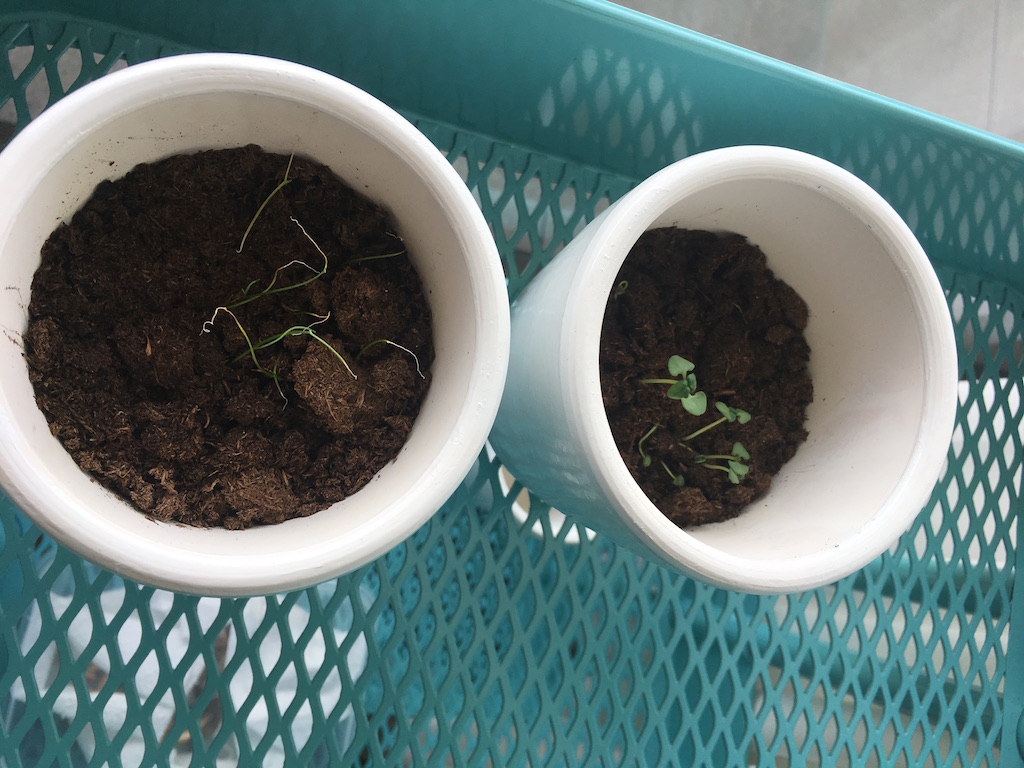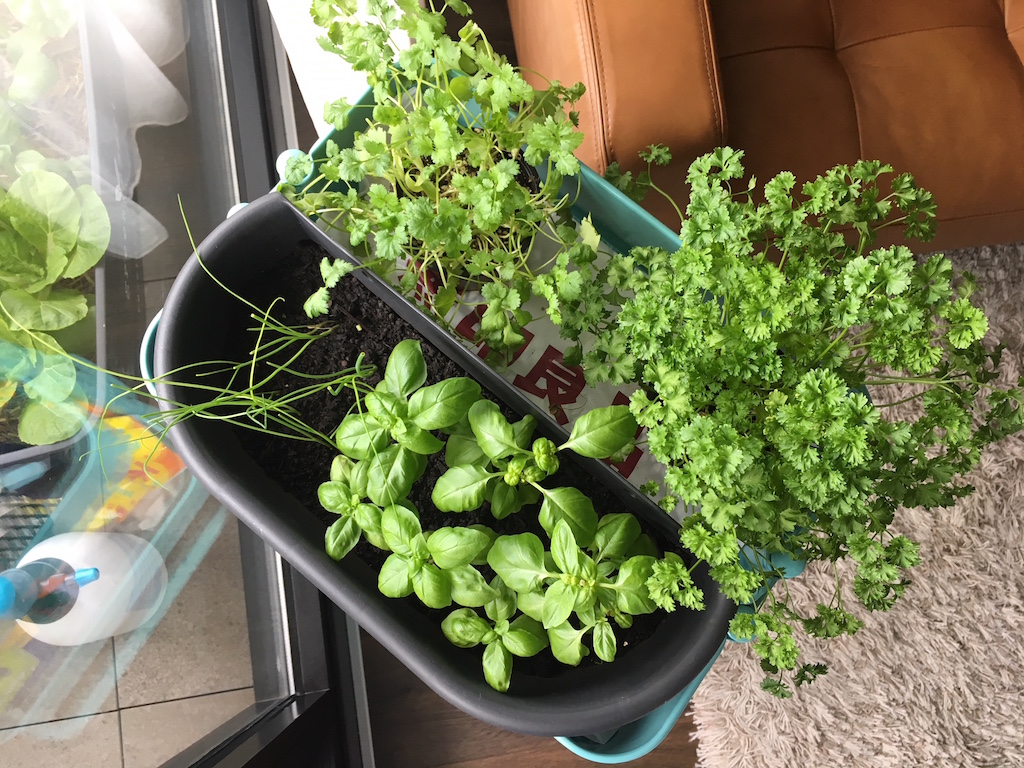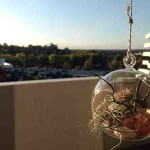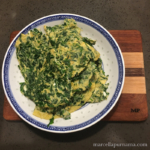When Tjok and I first decided to try grow some greeneries, we really, really have no idea how to do it.
Growing plants should have been instinctive—after all, our ancestors have done it for hundreds of thousands of years. But we really don’t get the genes, and everything henceforth is trial and error.
In January, Tjok bought a seed planter kit for parsley, basil, and chive. Since it was summer, we decided to only plant the basil and chive. (We read somewhere that it wasn’t the optimal season for parsley to grow from seed.)
Weeks went by, and our seedlings looked so, so sad.
Really sad.
I wasn’t sure whether I’ve watered too much or watered too little. Or was it too much or too little sun?

The sad-looking chive and basil a few months ago. Actually I should have known that they lack water. Look at the soil!
We went back to Bunnings (where we bought the seed planter kit), showed the picture, and asked whether they had any advice. The lady on the gardening section was very helpful, not laughing at our inexperience and kindly said that they probably lacked water as they were grown in a small pot.
“Try to water the seedlings twice a day,” she said. “And if all else failed, come back with the pots and we can process a refund or exchange for you.”
Good to know.
So we tried once again to resurrect these herbs. We watered them more frequently, and for a time, they did grow better. They looked a little less sad looking, but weren’t really thriving.
So we bought a bigger pot, an organic potting mix, and transplanted the herbs.
Anddddd I finally figured out what happened: the soil on the old pots was dead dry. They were so dry that the pots ended up staying soaked with soap water for two days to get rid of all the soil, and until now they were still stained with soil. Apparently spraying them twice a day is still not enough water.
So I learned a lesson in watering: you can’t really guess whether the plants need water or not until you stick your finger on the soil and see whether they are moist or dry.
In other words: you have to get your hands dirty.

The chive and basil at their new home (the black pot). We have harvested them a few times now. I’d say they are doing good!
Thing is: I really dislike getting my hands dirty.
There’s a reason why I hate cleaning the bathroom: I feel like it’s the type of cleaning where I really, really have to get my hands dirty. Doing the laundry and vacuuming don’t get your hands dirty. And not even washing the dishes, because ahem, dishwasher, and the invention of kitchen sponge with handle.
I love cooking, but there’s this one part of cooking I dislike the most: it’s cutting the meat. The only exception when I don’t mind getting my hands dirty is when I’m baking bread. I really do love bread, and I really love the smell of a dough. I would gladly knead and shape the dough with bare hands.
And back to gardening.
Every time we asked the plant seller on how to take care of the plant they were selling us, we would get the same response: “Just stick your finger to the soil and water when it’s dry.” This is especially true for bonsai, because if we screw up on their watering, well, they die.
The lady who sold us the orchids said, “Take out the orchid from the decorative pot and touch the plant from the drainage hole. If it’s still wet, wait a couple more days.”
But I was stubborn, and I still tried to merely guess whether the plants need watering from merely seeing. That was before I transplanted the herbs.
So to keep the plants alive, I have to learn to be comfortable with dirt and soil on my hands. It’s weird, because I know that once upon a time when I was little, I would actively seek soil, dirt, and sand.
The herbs are doing much better now. I’d touch the soil in the morning and see whether they need to be watered that day. They are growing, all green and healthy.
And I don’t think this principle is limited to gardening.
To cook a good steak, you need to touch the meat to know whether they are rare, medium, or have passed the point of no return. To perfectly froth the milk for that cup of latte, you need to put your hands on the milk jug to determine the perfect temperature.
Sometimes we’re too lazy to do the extra step, and sometimes we feel like we can just trust our eyes. But oftentimes only by getting our hands dirty that we can achieve better results, whether it is in gardening, cooking, or relationship.
I mean, only by communicating honestly and openly that we can grow. Guessing doesn’t really work in a relationship.
Ps. There’s actually a wikihow page on how to enjoy getting your hands dirty. I’m not the only one!









